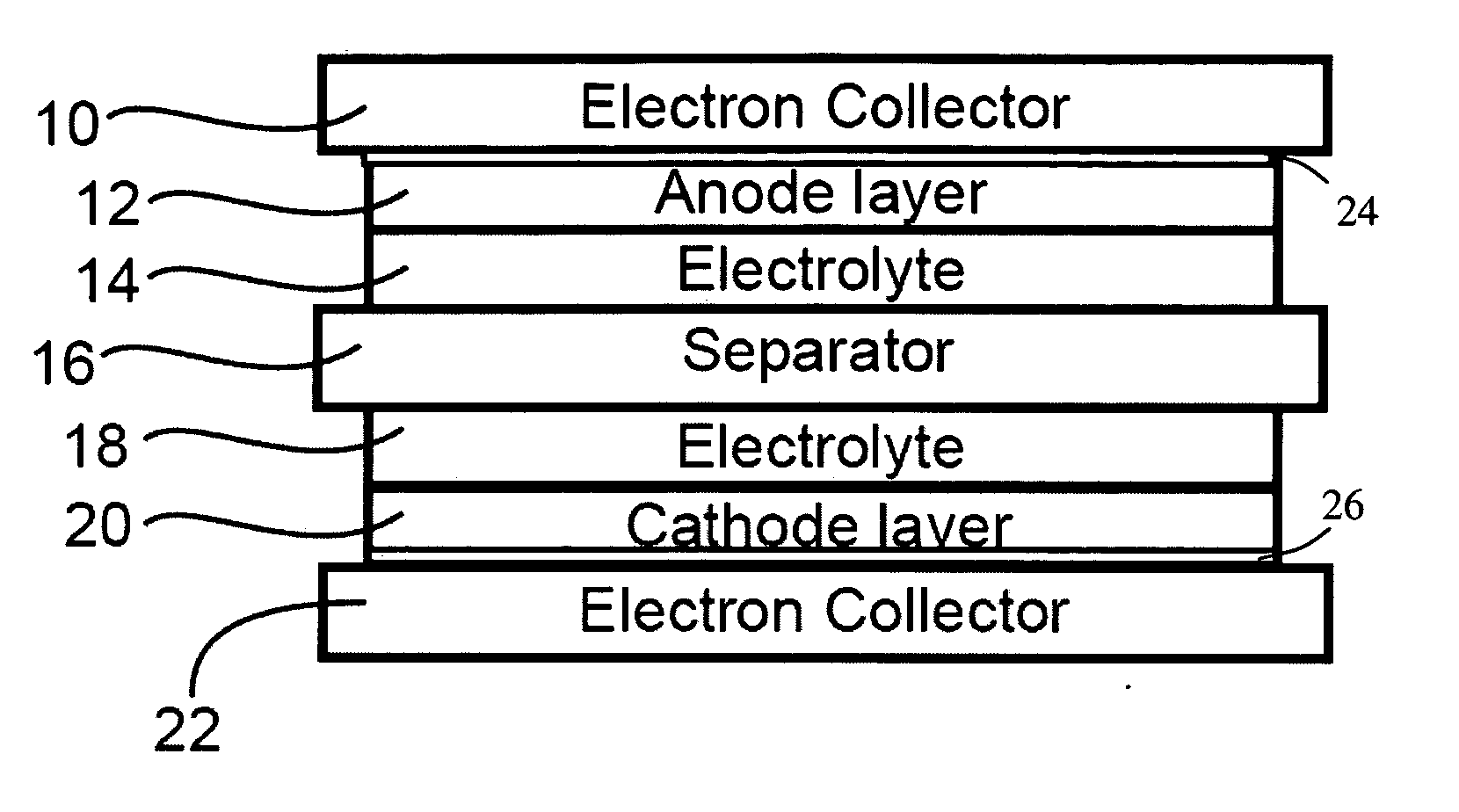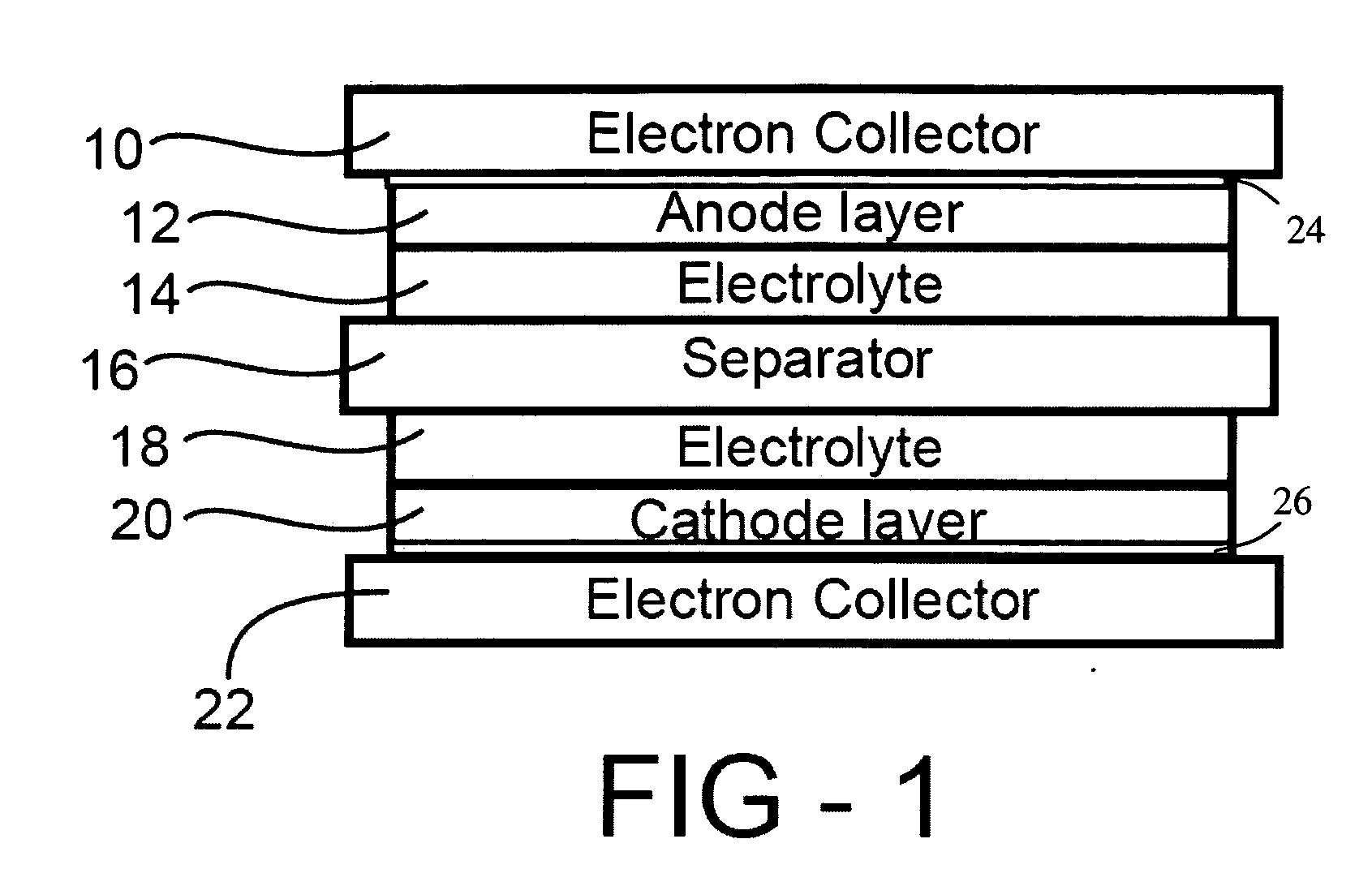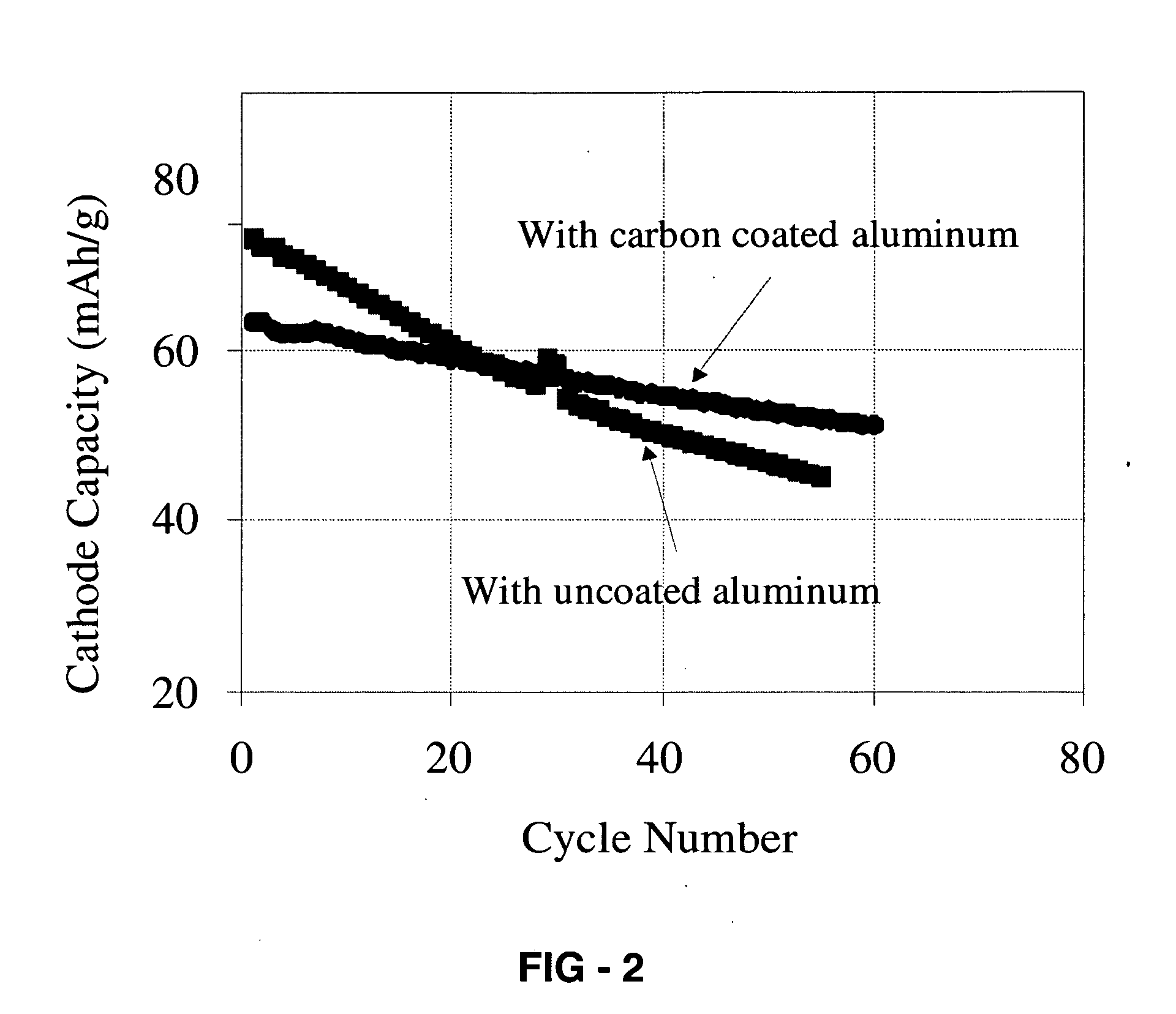Corrosion protection using carbon coated electron collector for lithium-ion battery with molten salt electrolyte
a lithium-ion battery and carbon coating technology, applied in the field of batteries, can solve the problems of significantly reducing the lifetime of the battery, affecting the corrosion protection of the battery, and degrading the cycling ability and high rate performance of the battery, and none of them are related to carbon coating electron collectors
- Summary
- Abstract
- Description
- Claims
- Application Information
AI Technical Summary
Problems solved by technology
Method used
Image
Examples
example 1
[0019] Positive electrode was fabricated by intimately mixing 85 wt % LiCoO2 powder, 10 wt % carbon powder, and 5 wt % solvent of polyvinylidene fluoride in N-methylpyrrolidone. To form the positive electrode film, the mixed slurry was cast onto aluminum foil (coated or uncoated with carbon) by using doctor blade and dried at 80° C. for 30 minutes.
[0020] A negative electrode was fabricated by intimately mixing 85 wt % Li4Ti5O12 powder, 10 wt % carbon powder, and 5 wt % solvent of polyvinylidene fluoride in N-methylpyrrolidone. To form negative electrode film, the mixed slurry was cast onto aluminum foil (coated or uncoated with carbon) by using doctor blade and dried at 80° C. for 30 minutes.
[0021] The positive electrode sheet, a micro-porous polypropylene film separator, and the negative electrode sheet were stacked, and placed in aluminum laminate pack. A certain amount of the MPI-FSI molten salt electrolyte was added in to the laminate pack. Here, methyl-propyl-imidazolium-bis-...
example 2
[0022] Positive electrode was fabricated by intimately mixing 85 wt % LiCoO2 powder, 10 wt % carbon powder, and 5 wt % solvent of polyvinylidene fluoride in N-methylpyrrolidone. To form the positive electrode film, the mixed slurry was cast onto aluminum foil (coated or uncoated with carbon) by using doctor blade and dried at 80° C. for 30 minutes.
[0023] A negative electrode was fabricated by intimately mixing 85 wt % Li4Ti5O12 powder, 10 wt % carbon powder, and 5 wt % solvent of polyvinylidene fluoride in N-methylpyrrolidone. To form negative electrode film, the mixed slurry was cast onto aluminum foil (coated or uncoated with carbon) by using doctor blade and dried at 80° C. for 30 minutes.
[0024] The positive electrode sheet, a micro-porous polypropylene film separator, and t h e negative electrode sheet were stacked, and placed in aluminum laminate pack. A certain amount of molten salt electrolyte was added in to the laminate pack. Here, ethyl-1-methyl-3-imidazolium-bis-fluoro-...
PUM
 Login to View More
Login to View More Abstract
Description
Claims
Application Information
 Login to View More
Login to View More - R&D
- Intellectual Property
- Life Sciences
- Materials
- Tech Scout
- Unparalleled Data Quality
- Higher Quality Content
- 60% Fewer Hallucinations
Browse by: Latest US Patents, China's latest patents, Technical Efficacy Thesaurus, Application Domain, Technology Topic, Popular Technical Reports.
© 2025 PatSnap. All rights reserved.Legal|Privacy policy|Modern Slavery Act Transparency Statement|Sitemap|About US| Contact US: help@patsnap.com



